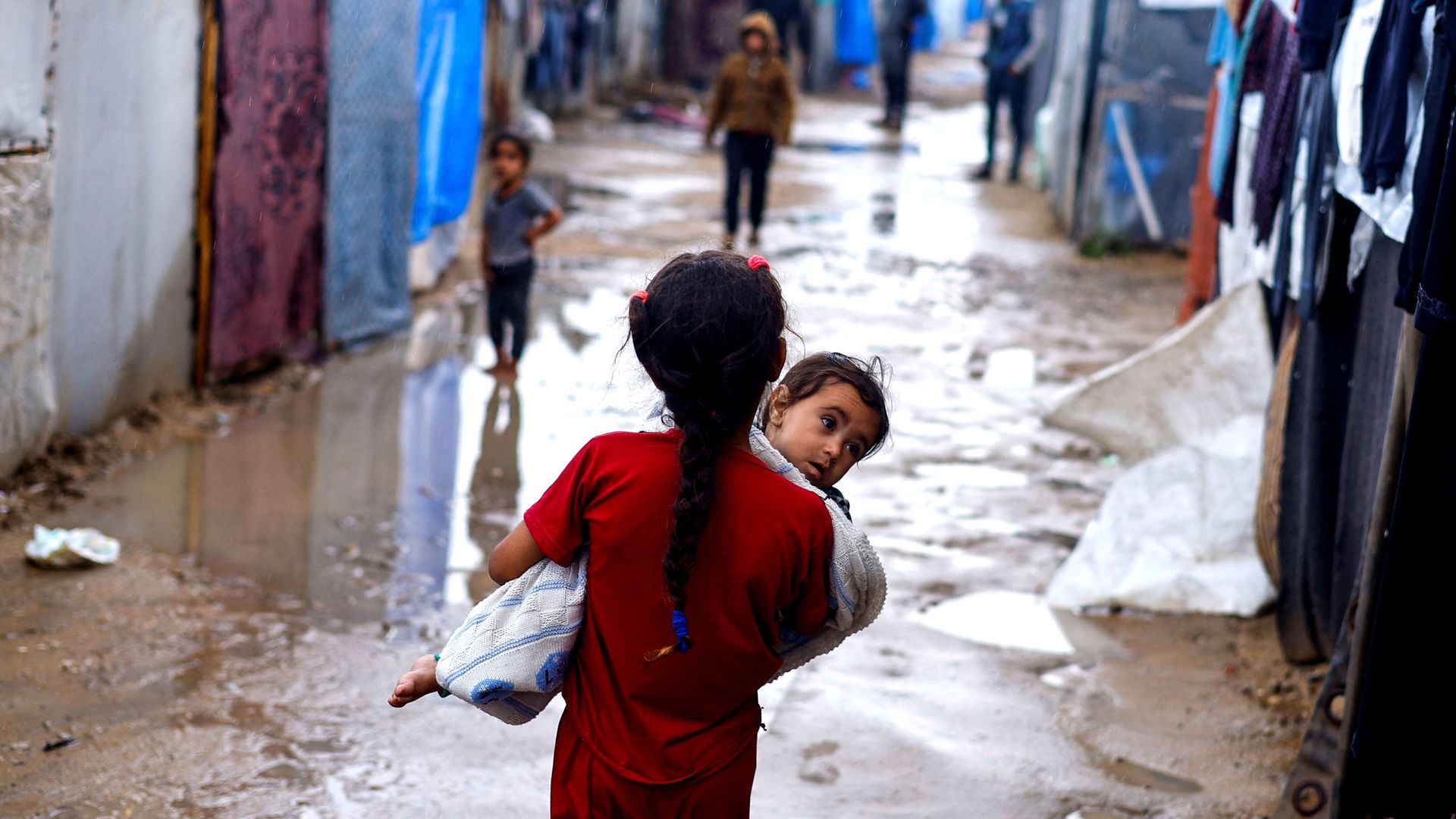Senior Israeli officials have been threatening a major military operation into the city of Rafah and surrounding areas in southern Gaza for weeks.
On Sunday, Israeli defence minister Yoav Gallant warned it could take place “imminently” as talks on a ceasefire with Hamas fizzled-out in Cairo.
Now, they have taken a major step towards it.
War latest: Families flee Rafah as IDF orders 100,000 to evacuate
On Monday morning, the Israel Defence Forces (IDF) released a statement instructing people in southeastern Gaza to advance towards an “expanded humanitarian area” to the north, centred around the city of Khan Younis, and a coastal community called Al-Maws.
The IDF said it “includes field hospitals, tents and increased amounts of food, water, medication and additional supplies”.
The claim will be greeted with scepticism by international aid agencies that have argued the Israelis have failed to do enough to facilitate such aid.
In Washington DC and Gaza two very different families are united by one very rare disease
Israel-Hamas war: ‘Cancerous’ pro-Palestinian university protests ‘reminiscent of 1930s Germany’, Holocaust expert says
Aid passing through Gaza’s ‘lifeline’ northern crossing at Erez for first time
The UN’s refugee agency in Gaza, UNRWA, immediately questioned the operation on X.
UNRWA said an offensive “would mean more civilian suffering and deaths” and that “the consequences would be devastating for 1.4 million people”.
The vast majority of people living in southern Gaza have already been displaced by the fighting further north.
And in what represents a significant juncture, the Israelis are instructing them to return to areas that have already badly damaged in this conflict.
Khan Younis was placed under siege by the IDF in January and many neighbourhoods have been partially – or completely – destroyed.
However, there are no doubts about the Israelis’ intent.
Leaflets are now being dropped in southeastern Gaza, stating: “Anyone in the area puts themselves and their family members in danger. For your safety, evacuate immediately….”
With this operation, Israel would test the very limits of support that it receives from Western countries like the US, the UK and members of the European Union.
Last week, US secretary of state Antony Blinken suggested an incursion into Rafah was a step too far, warning the Israelis had yet to produce “a clear, credible plan to protect civilians”.
Until it does, Mr Blinken said Washington “cannot and will not support a major military operation” in the area.
Read more:
Peace looks distant as ever after Israel refuses ceasefire terms
Inside Gaza protest’s last stand
Now, Israel’s chief ally and military backer will have to formulate a response, one which requires them to evaluate the nature and extent of this complicated relationship.
But it seems Israeli Prime Minister Benjamin Netanyahu and his war cabinet have made up their minds.






















